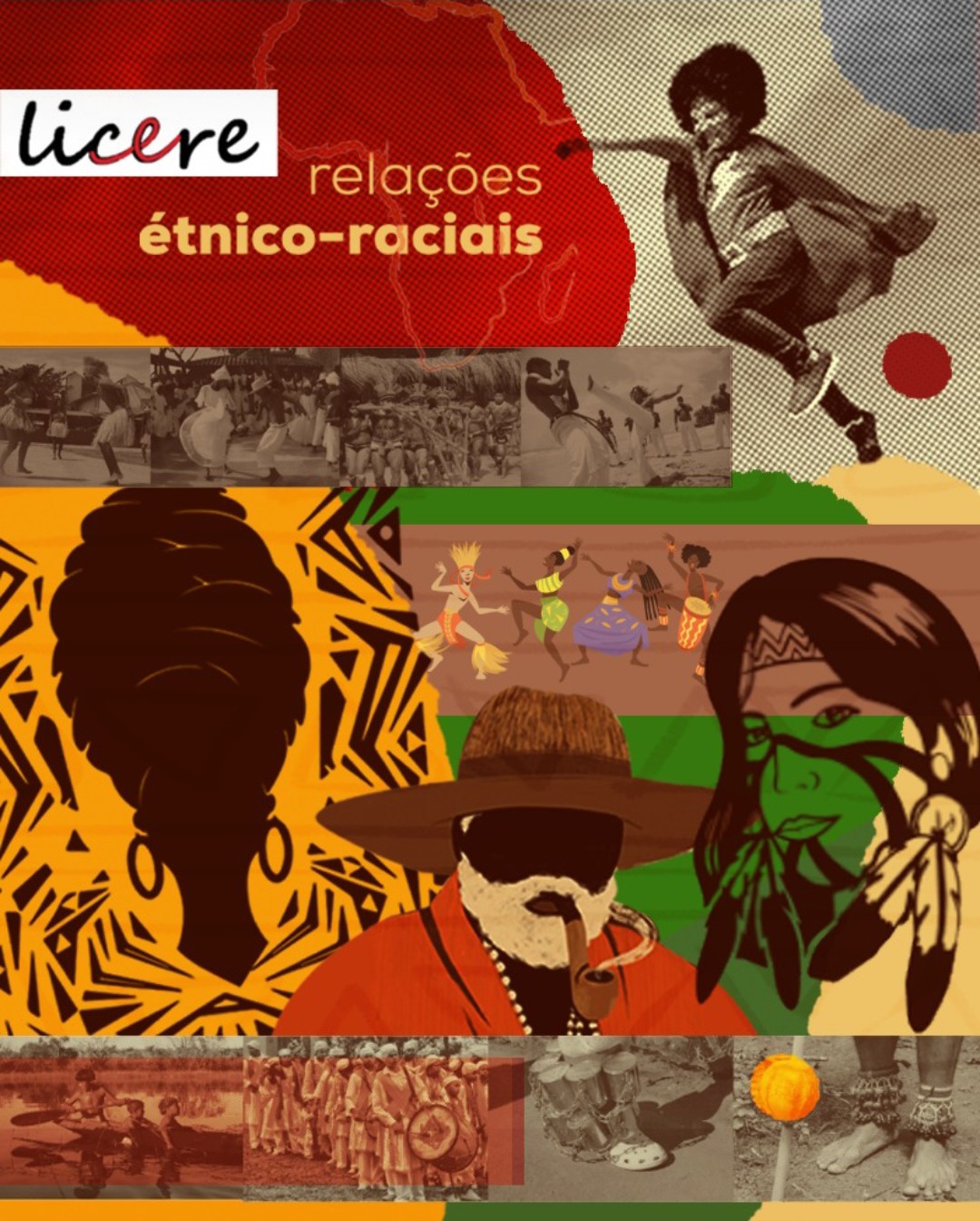Afrofuturism as an Alternative for the Construction of Other Leisure Curricula
DOI:
https://doi.org/10.35699/2447-6218.2021.37723Keywords:
Afrofuturism, Leisure activities, Subjectivation processesAbstract
The present study represents the cross between Cultural Studies and Curricular and Leisure Studies. At this intersection, strategies for curriculum formation and subjectivity in the postcolonial world are discussed, based on the relationship between the concepts of dis-placement and inter-places of Stuart Hall and Homi Bhabha. The notion of curriculum, according to Marlucy Paraíso, articulated with the diaspora of African people, in the reading of Paul Gilroy, opens the path for the study that proposes an approximation between the personal experiences described by Hall, Ebony Thomas and the author of this article, to perceive Afrofuturism as an alternative for the construction of forms of curriculum for the leisure, which, instead of imprisoning, reactivate forces, committing themselves to ethnic-racial relationships.
Downloads
References
AGAMBEN, G. O que é o contemporâneo? e outros ensaios. Tradução: Vinícius Nicastro Honesko. Chapecó: Argos, 2009.
AIN-ZAILA, Lu. (In)verdades. Rio de Janeiro, 2016.
AIN-ZAILA, Lu. (R)evolução. Rio de Janeiro, 2017.
ANDRADE, M. A superstição da cor preta (1a ed. 1938). Revista Apotheke, v. 7, n. 1, p. 225–229, 2021.
BENTO, M. A. S. Branqueamento e branquitude no Brasil. In: CARONE, I.; BENTO, M. A. S. (Eds.). . Psicologia Social do Racismo: estudos sobre branquitude e branqueamento no Brasil. Rio de Janeiro: Vozes, 2002. p. 25–58.
BHABHA, H. K. O local da Cultura. Tradução: Myriam Ávila; Eliana Lourenço de Lima Reis; Gláucia Renate Gonçalves. 1. ed. Belo Horizonte: Editora UFMG, 1998.
DEACON, R.; PARKER, B. Educação como sujeição e como recusa. In: SILVA, T. T. (Ed.). . O sujeito da educação: estudos foucaultianos. 5.ed. Petrópolis: Vozes, 2002.
DERY, M. Black to the Future: interviews with Samuel R. Delany, Greg Tate, and Tricia Rose. In: DERY, M. (Ed.). Flame Wars: the discourse of cyberculture. Durham: Duke University Press, 1994. p. 179–222.
DU BOIS, W. E. B. The Souls of Black Folk. (1a edição, 1903). Oxford: Oxford University Press, 2016.
ELIA, A. The Languages of Afrofuturism. Lingue e Linguaggi, v. 12, p. 83–96, 2014.
ESHUN, K. Further considerations of afrofuturism. CR: The New Centennial Review, v. 3, n. 2, p. 287–302, 2003.
FOUCAULT, M. Microfísica do poder. (1a ed. 1979). 13.ed. Rio de Janeiro: Edições Graal, 1998.
FREITAS, K.; MESSIAS, J. O futuro será negro ou não será: Afrofuturismo versus Afropessimismo - as distopias do presente. Imagofagia: Revista de la Asociación Argentina de Estudios de Cine y Audiovisual, n. 17, p. 402–424, 2018.
GILROY, P. O Atlântico Negro: modernidade e dupla consciência. Tradução: Cid Knipel Moreira. São Paulo: Editora 34, 2001.
GROSFOGUEL, R. Para descolonizar os estudos de economia política e os estudos pós-coloniais: Transmodernidade, pensamento de fronteira e colonialidade global. Periferia, v. 1, n. 2, p. 41–91, 26 Dez. 2009.
HALL, S. Da diáspora: identidades e mediações culturais. 2. ed. Belo Horizonte: Editora UFMG, 2003.
KABRAL, Fábio. Ritos de passagem. São Paulo: Giostri, 2014.
MERCER, K. Black Art and the Burden of Representation. Third Text, v. 4, n. 10, p. 61–78, 1990.
MERCER, K. Welcome to the Jungle: new positions in black cultural studies. New York: Routledge, 1994.
MIGNOLO, W. D. A Colonialidade de cabo a rabo. In: LANDER, E. (Ed.). A colonialidade do saber. Eurocentrismo e ciências sociais. Perspectivas latino-americanas. Buenos Aires: CLACSO, Consejo Latinoamericano de Ciencias Sociales, 2005. p. 33–49.
MIGNOLO, W. D.; WALSH, C. E. On Decoloniality. Durham: Duke University Press, 2018.
OSSWALD, A. M. O familiar e o estranho. Uma aproximação aos estudos sobre o habitar: entre a fenomenologia e a psicanálise. NUFEN, v. 10, n. 3, p. 64–86, 2018.
PARAÍSO, M. A. Currículo e formação profissional em lazer. In: ISAYAMA, H. F. (Ed.). . Lazer em estudo: currículo e formação profissonal. Campinas: Papirus, 2010. p. 27–58.
PARAÍSO, M. A. Um currículo entre formas e forças. Educação, v. 38, n. 1, p. 49, 14 Abr. 2015.
PECLY, Julio. Cidade de Deus Z. Rio de Janeiro: Casa da Palavra, 2015.
RIBEIRO, D. O que é Lugar de Fala? Belo Horizonte: Editora Letramento, 2017.
SILVA, A. G. DA. Lazer, animação sociocultural e educação profissional: mapeamento de currículosencontros no Brasil e em Portugal. Universidade Federal de Minas Gerais, 2021.
SOUZA, W. G. DE. Afrofuturismo: o futuro ancestral na literatura brasileira contemporânea. [s.l.] Universidade de Brasília, 2019.
TAYLOR, C. The Politics of Recognition. In: GUTMANN, A. (Ed.). . Multiculturalism: examining the politics of recognition. princeton: Princeton University Press, 1994. p. 25–73.
THOMAS, E. E. The Dark Fantastic: race and the imagination from Harry Potter to The Hunger Games. New York: New York University Press, 2019.
WESCHENFELDER, V. I.; LINHARES DA SILVA, M. A cor da mestiçagem: o pardo e a produção de subjetividades negras no Brasil contemporâneo. Análise Social, v. LIII, n. 227, p. 308–330, 1 Jun. 2018.
WOMACK, Y. L. Afrofuturism: the world of black sci-fi and fantasy culture. Chicago: Lawrence Hill Books, 2013.
YASZEK, L. Race in Science Fiction: the case of afrofuturism. A Virtual Introduction to Science Fiction, n. 180, p. 1–11, 2013.
Downloads
Published
How to Cite
Issue
Section
License
Copyright (c) 2021 LICERE - Revista do Programa de Pós-graduação Interdisciplinar em Estudos do Lazer

This work is licensed under a Creative Commons Attribution-NonCommercial 4.0 International License.

